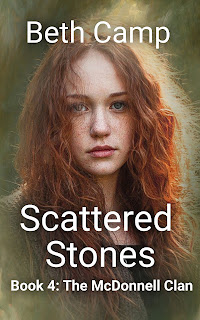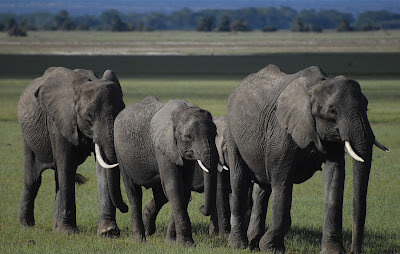As Standing Stones ended, Dylan left Moira behind on Foulksay Island in March of 1842 to seek work in Inverness. Moira thought she might be pregnant, but she wasn't sure, so she said nothing. Despite his best efforts, Dylan couldn't find work on the mainland of Scotland, winding up in Edinburgh and missing Moira terribly.
Moira could no longer stay on Foulksay Island, for there was nothing there for her and the coming baby. She also traveled to Inverness, looking for Dylan. She wound up at a home for unwed mothers, where Rose was born in August of 1842.
Right now I'm working on those baby milestones. Exactly how old is a baby when she starts to crawl? to laugh? to babble and almost talk? Here's a picture of Rose at about one year old that's inspired me along the way. You can see that Rose has her daddy's dark hair and dark eyes.
Do I have a deadline? Yes, but it keeps shifting as I revise. I'm hoping final revisions will be done sometime this spring.“Yes,” said Mrs. Harcourt. “Ellen, clean her up a little first, and then give the baby to Moira. For now.”
Ellen washed the infant gently and wrapped her in a white blanket, laying her on Moira’s chest. “She’s beautiful.”
“Aye, she is.” All Moira wanted was to hold her baby. She held her breath as she looked at that tiny pink face, the baby’s dark eyes now open, and her little fingers moving. Moira touched the baby’s warm cheek. The baby closed her eyes and slept.
Mrs. Harcourt checked Moira’s forehead again. “Ellen, you know what to do here. Let me know right away if anything changes.”
Once Mrs. Harcourt left, Ellen changed the bedding, flinging the used sheets out the window, down into the courtyard. “Wish you could help me wash these, but you’ll be busy here with the little one. I’ll check back later. Just rest, all right?”
Moira nodded. She couldn’t stop staring at the perfect infant she held so close, hardly noticing when Ellen left the room. My life has changed irrevocably, she thought. I’m a mother now. A feeling of wonder filled her. Dylan, I wish you were here to share this moment.










